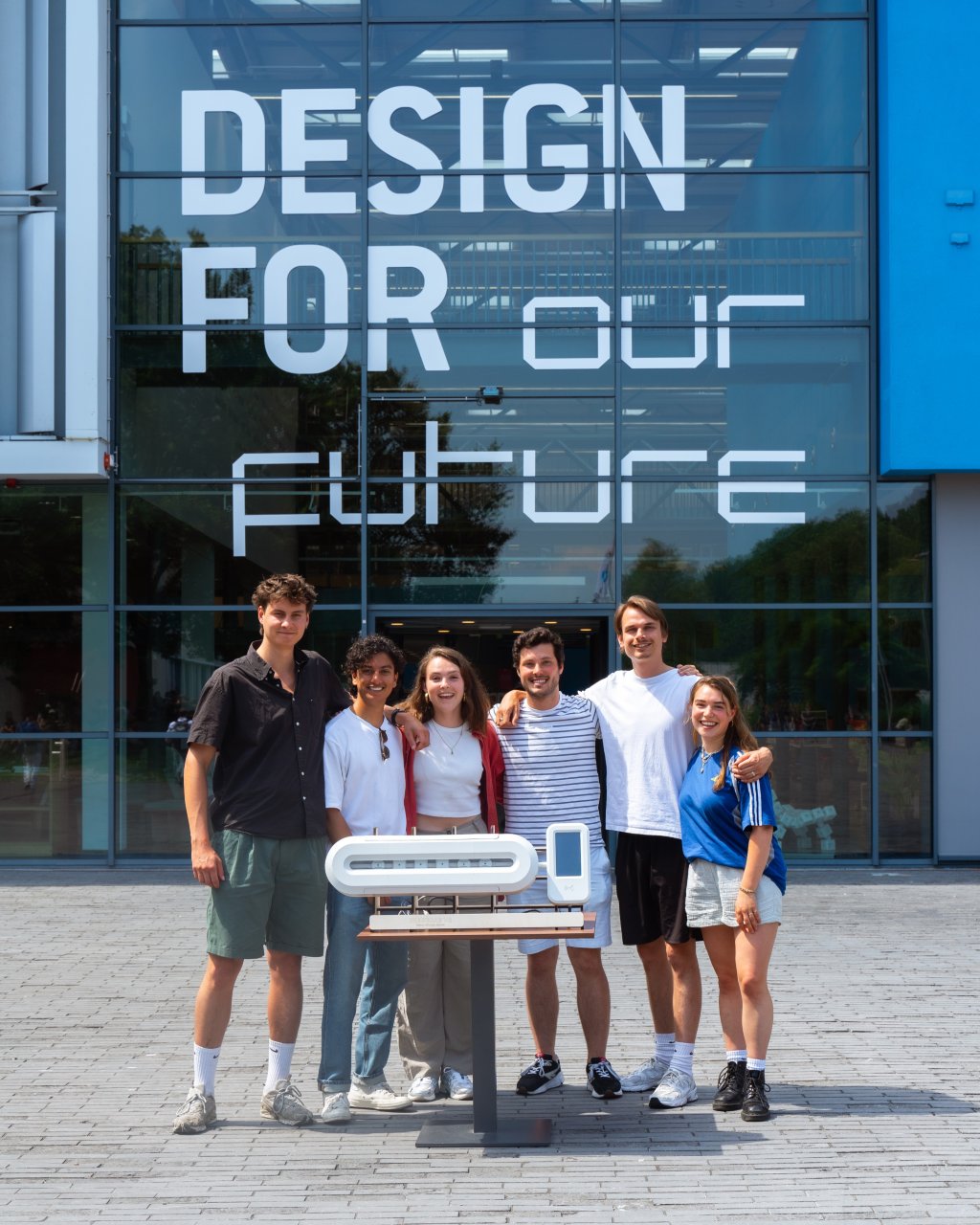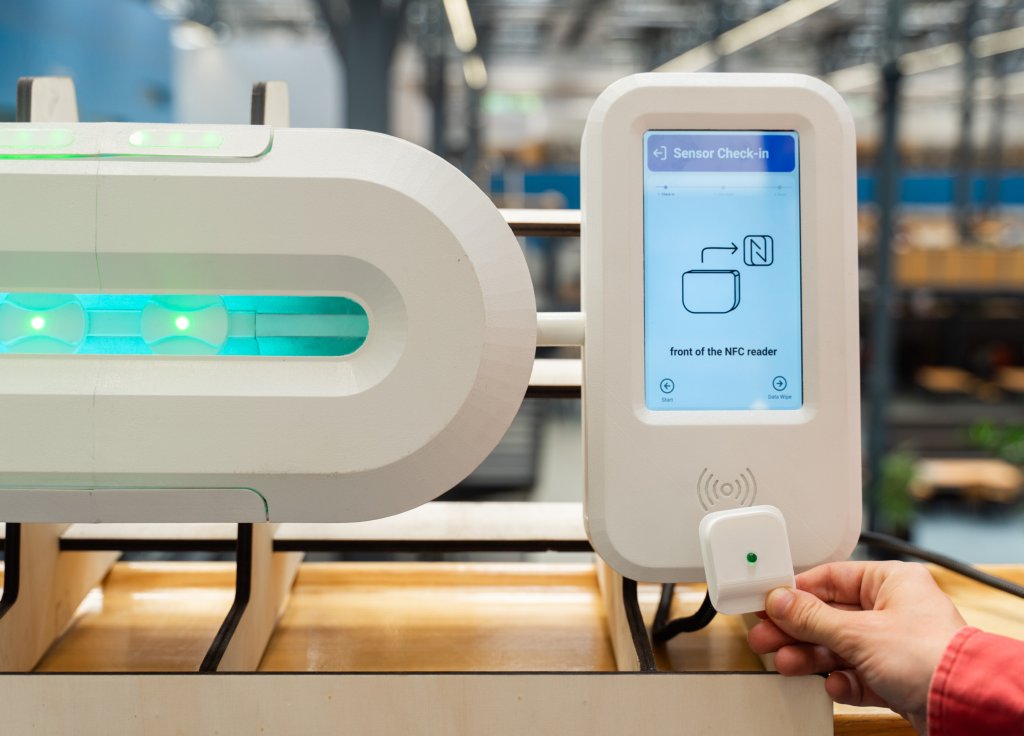Anna Statius Muller, Boris Kastelein, Olaf Bouwens, Ids Grupstra, Jamil Badloe, Josje Smulders
Medical wearable sensors (MWS) are crucial for monitoring both high-risk individuals and post-surgery patients. By reducing workload, MWS can help counter the effect of rising healthcare staff shortages. However, MWS are mostly discarded after a single use, wasting valuable electronic components with critical raw materials and high energy production costs. These components could be reused to cut e-waste.
Our goal is to enable the reuse of MWS to support a circular healthcare system, minimizing e-waste and logistical issues at hospital wards. How can we make reusability in healthcare more feasible?
Matthijs Bult's master's thesis introduced SenseCab, a device that charges, wipes data, and disinfects MWS for reuse, reducing their environmental impact (Bult, 2023).
A team of six Integrated Product Design master’s students at TU Delft built on this idea, creating an improved prototype. This prototype initiates conversations on better utilizing high-tech healthcare devices and illustrates how a circular system can promote a more sustainable and future-proof healthcare system.
As Bult’s design was at concept level, the team started creating a redesign and building a physical prototype from scratch. Special features are:
- a modular system to clean ten sensors per module and adapt the number of modules per department;
- UV-C light technology to disinfect the sensor within 30 seconds;
- The use of lights, cues and a screen to create a quick yet trustworthy interaction with the device.
With Sensecab we imagine a future where medtech devices are part of a circular society. By stimulating the healthcare industry, from manufacturers to hospitals, to work together, we can improve people's and the planet's health.


